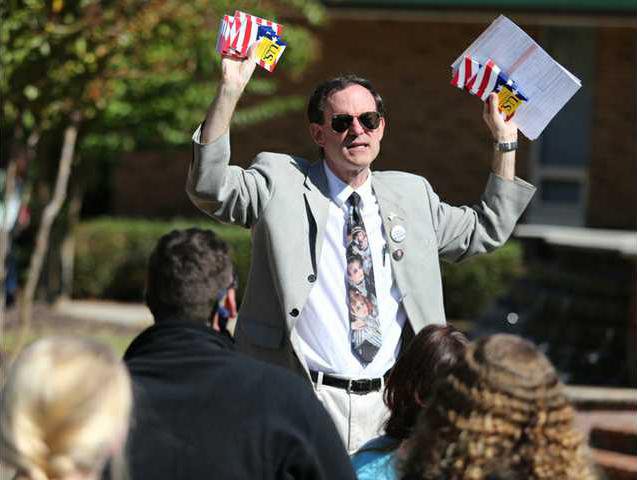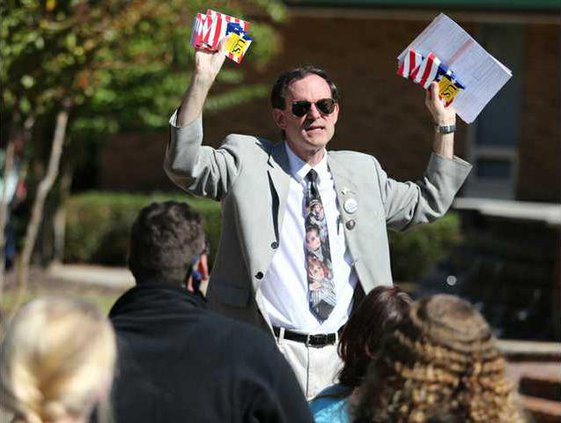Amnesty for undocumented immigrants is “the type of topic that gets you in trouble no matter how you respond to the question,” said Cristian Ramos, a panelist at a University of North Georgia event Wednesday.
But students on the university’s Gainesville campus are not afraid to discuss “politically incorrect” issues. The university’s Politically Incorrect Club held a sometimes heated debate Wednesday afternoon with more than 75 students gathered to watch.
Ramos, who joined fellow UNG students Aldo Mendoza and Chase Yarbrough to debate in favor of amnesty for undocumented migrants, said it’s important to understand what amnesty is.
“Amnesty is a pardon for people who have been politically found guilty, or who have found political offense,” Ramos said.
He added while undocumented migrants have broken a law, a distinction ought to be made between criminal laws and immigration laws. He said addressing the issue of migrants in America is a “moral duty.”
John Martin, a UNG student and Politically Incorrect Club secretary, joined Emily Polanco and Brian Carmack, seniors at Lanier High School, to argue against amnesty.
The debate was designed to feature opposing sides but was not necessarily a reflection of the speakers’ opinions.
“If we have a moral duty to illegal immigrants in our country, what about our moral duty to the Christians being beheaded?” Martin said. “What about the homosexuals being persecuted, our veterans we can’t take care of? What about our moral obligation to them?”
Polanco said undocumented migrants are benefiting from welfare because of their children born in the U.S. She argued these children were explicitly excluded in the Citizenship Clause of the 14th Amendment and quoted its author, Jacob Howard.
“These anchor babies have risen the population of people on welfare,” Polanco said.
Mendoza, an undocumented migrant himself, said he believes there is a misconception about migrants today.
“I work,” Mendoza said. “I pay my taxes and my parents pay taxes, as well. Most of you all don’t know undocumented workers do pay taxes, but unfortunately they cannot receive any of it back, as most only have tax IDs; they don’t have (Social Security cards).”
The debate was informal, and no winner was declared, but each side was given an opportunity to make its case, direct questions to the opposition and answer audience questions.
Douglas Young Jr., UNG professor and faculty adviser to the club, said he was pleased with the debate and the student interest.
“The debate was spirited, informative and inspired many students in the audience to ask questions,” Young said in an email. “In fact, about 20 students even stayed after the debate to further discuss immigration controversies with the panelists.”
Ramos encouraged those gathered to “look for the educational purposes” of the debate and to reach out to their local legislators and make their opinions known.
“The only reason we are having this debate is because Congress doesn’t want to deal with it,” Ramos said. “But something has to be done.”

